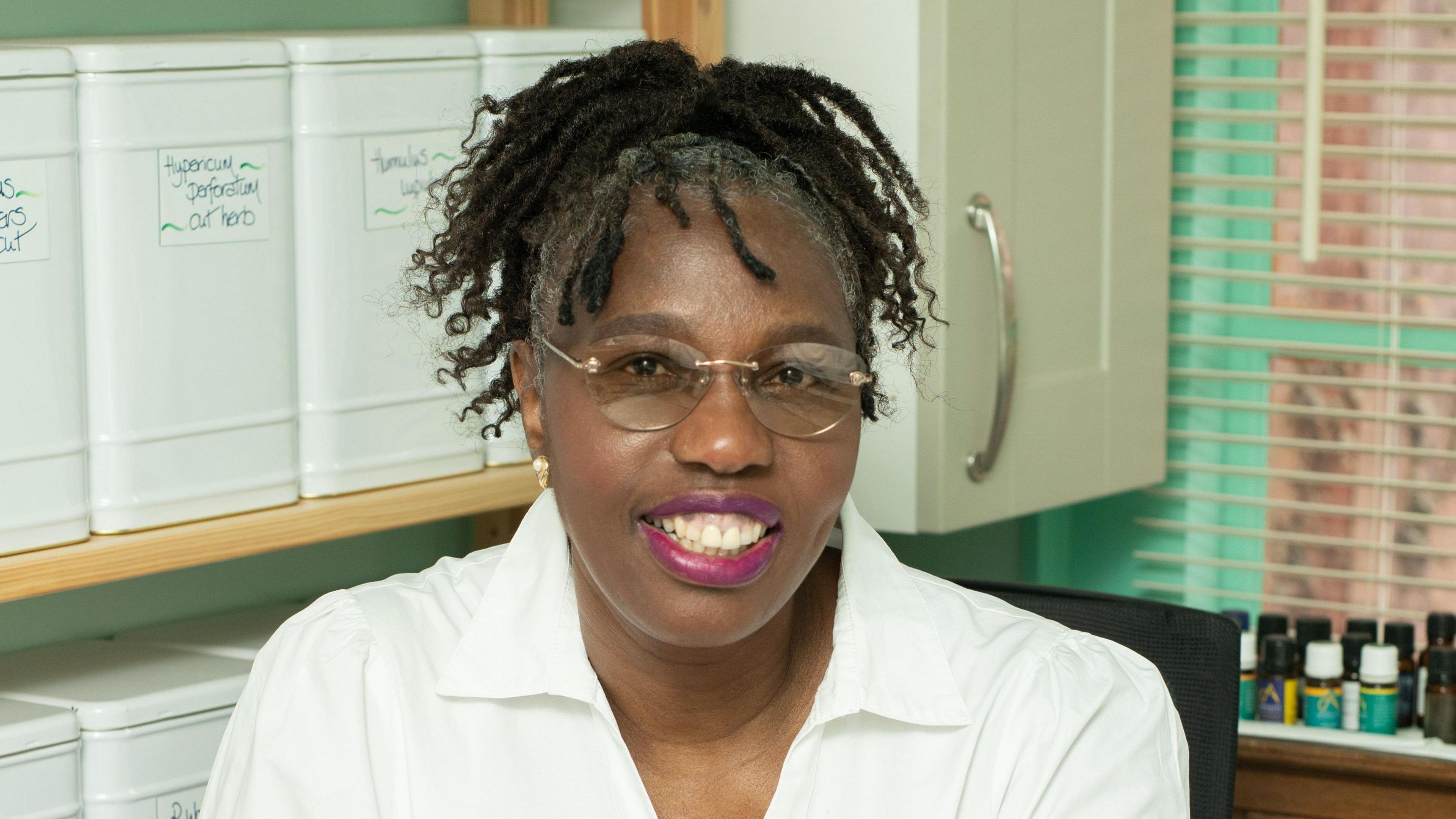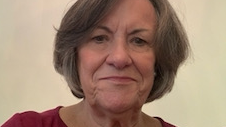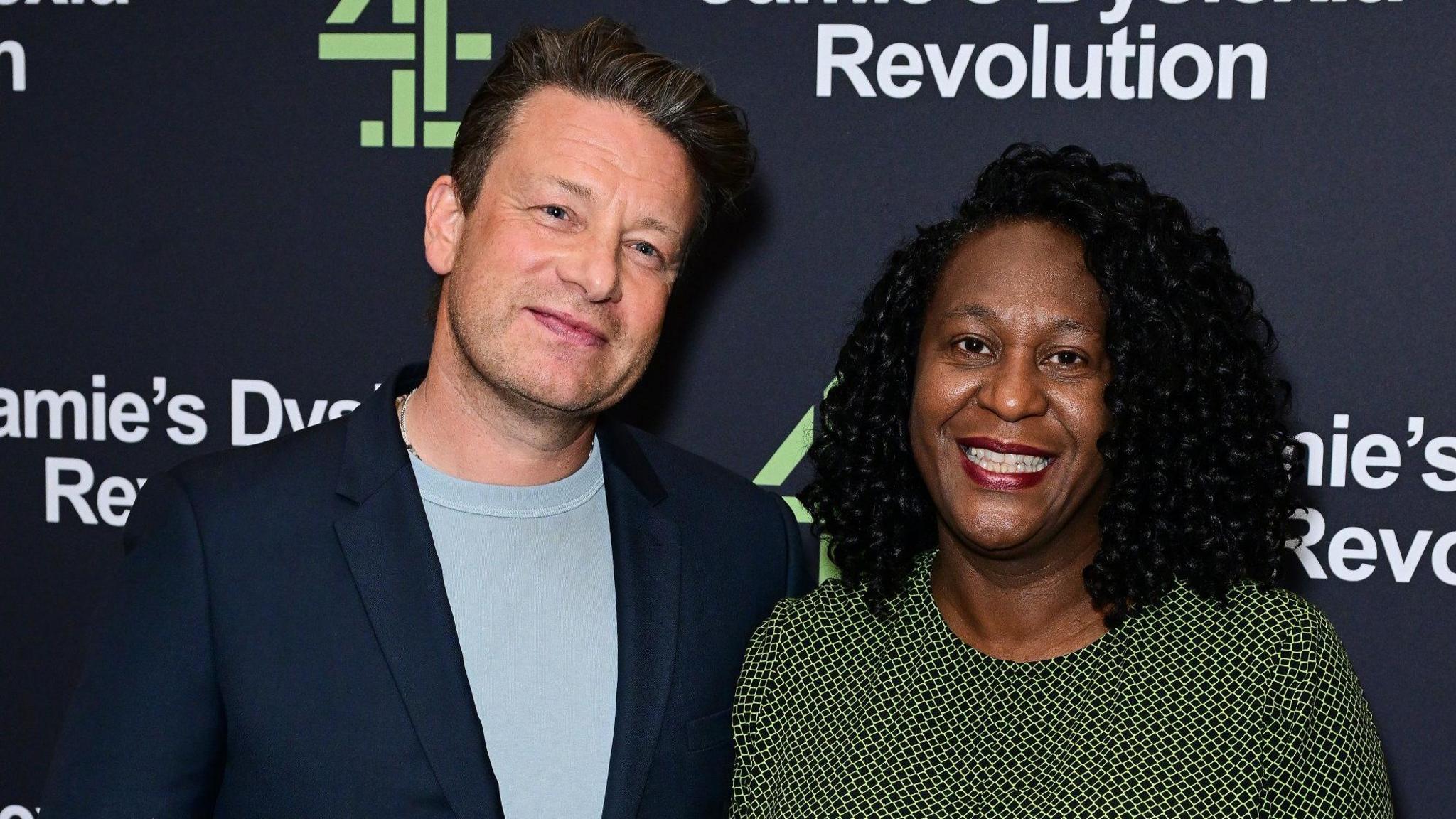'My dyslexia diagnosis was a lightbulb moment'

Alice Nugent said the diagnosis was a "relief"
- Published
Two women who found out they had dyslexia in their 40s have described how the diagnosis came as a "huge relief" and was "a lightbulb moment".
Sue Flohr, who runs the Adult Dyslexia Centre in Maidenhead, Berkshire, and one of the service's users, Alice Nugent, said growing up with the learning difficulty damaged their confidence.
The pair are now encouraging adults who think they might have the condition - which primarily impacts reading and writing skills - to get a diagnosis to better understand themselves.
Government statistics show that 6.3 million people in the UK have dyslexia, while one in six adults have the reading level of an 11-year-old.
Ms Flohr said she was described as a "slow developer" at school and sought a diagnosis after her children were found to have the disability.
She said: "Some [people] can grow up with poor self-esteem and a lack of confidence and never achieve their potential - and I think that's what we're there for.
"It's really unfortunate that we had to open a centre for adults some 20 years ago for all those people that were missed in school and are still being missed."

Sue Flohr was diagnosed with dyslexia in her 40s
She continued: "It knocks your self-esteem, it knocks your confidence.
"It means that generally everything takes you longer than other people. It can be infuriating."
Ms Nugent said her diagnosis as an adult was "like a lightbulb moment".
"Relief, like 'oh that's why I've been feeling this way, that's why I've been struggling so much but without realising what the problem was'.
"I knew there was something different about me but I couldn't pin it down.
"Now my confidence has gone up and I'm able to help other people as well."
A dyslexia diagnosis is not available via the NHS. It is recognised as a specific learning difficulty and this means it is an educational assessment.
A diagnosis can only be made by an educational psychologist who is registered with the Health and Care Professions Council or a specialist teacher with a valid registration.
Get in touch
Do you have a story BBC Berkshire should cover?
You can follow BBC Berkshire on Facebook, external, X (Twitter), external, or Instagram, external.
- Published10 June
